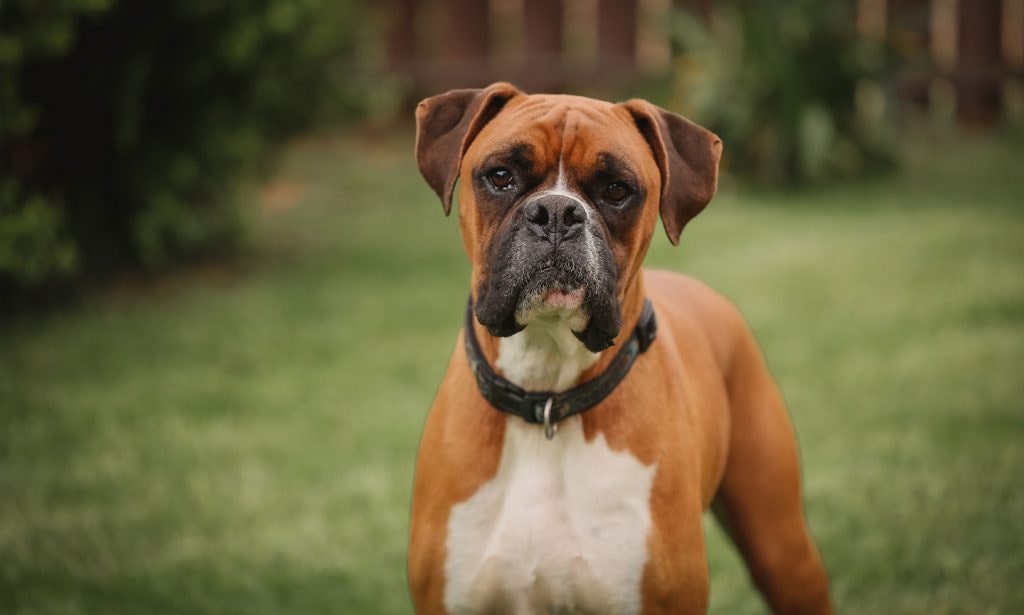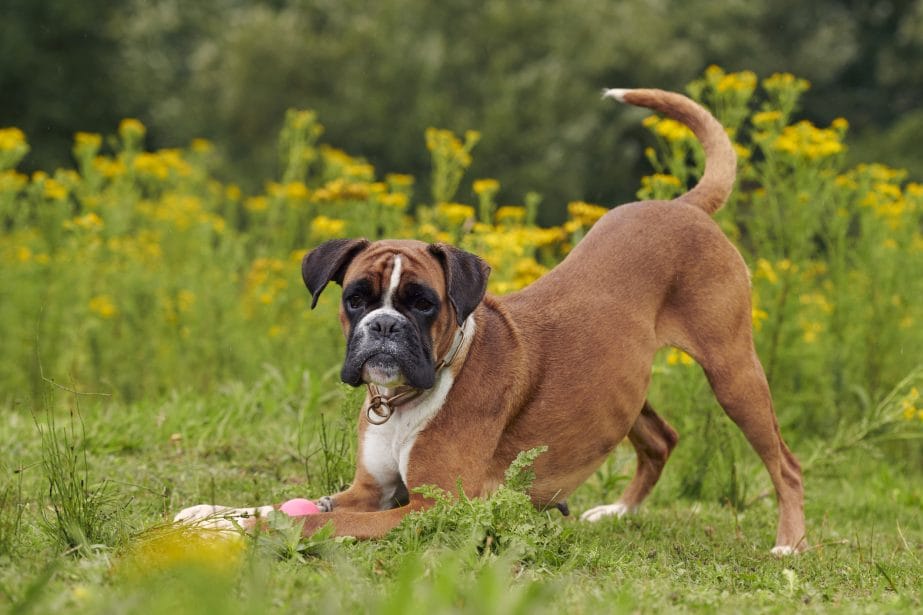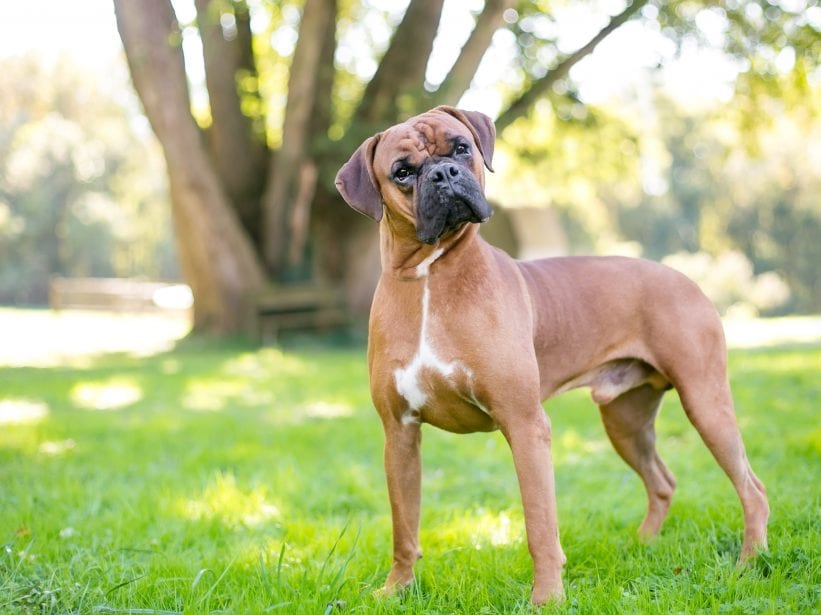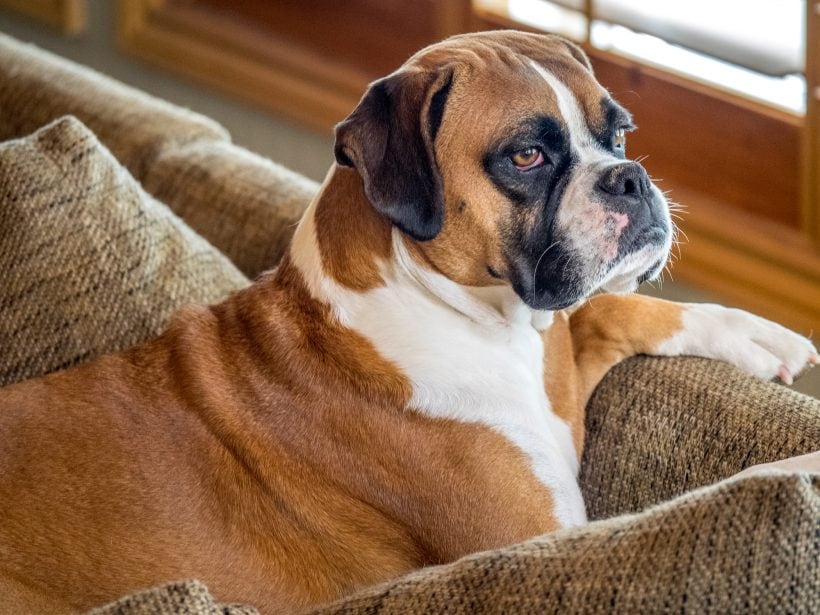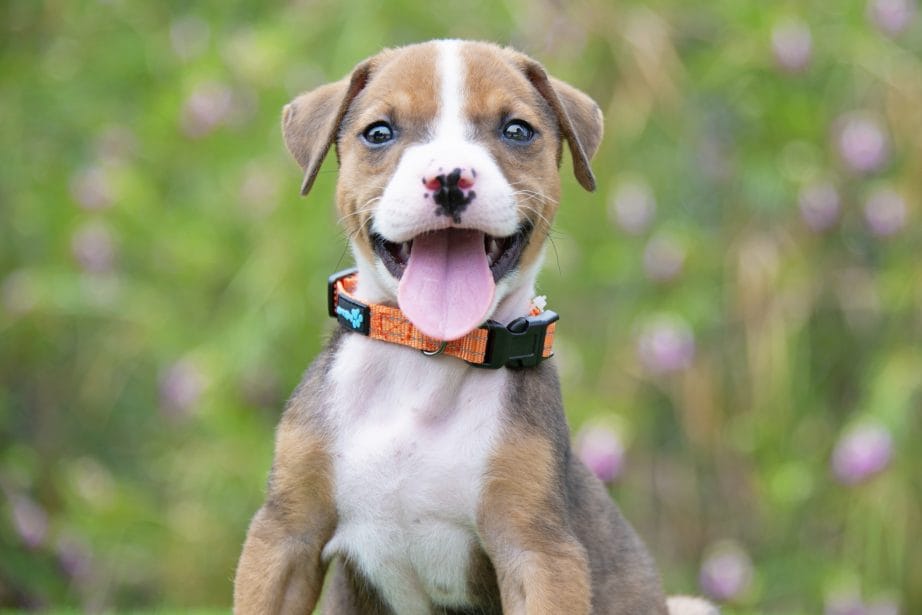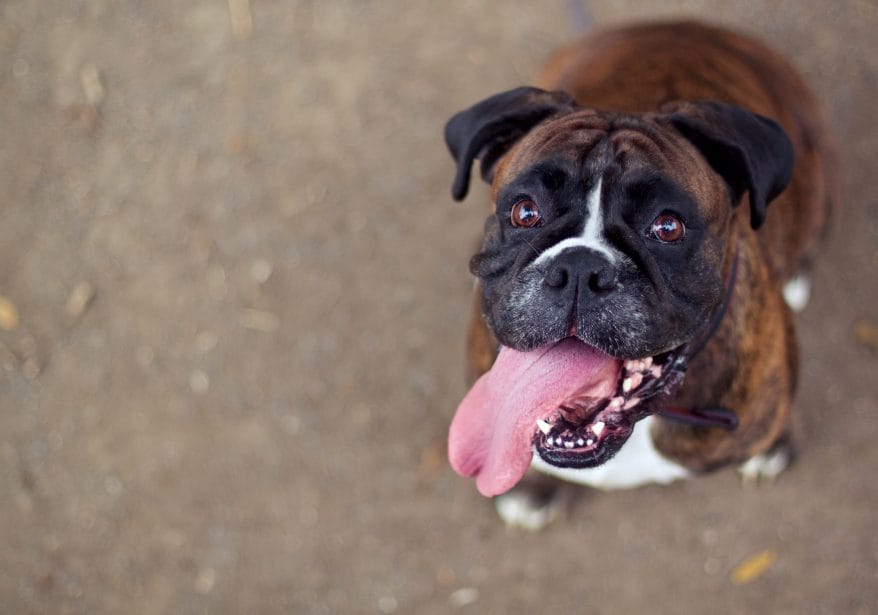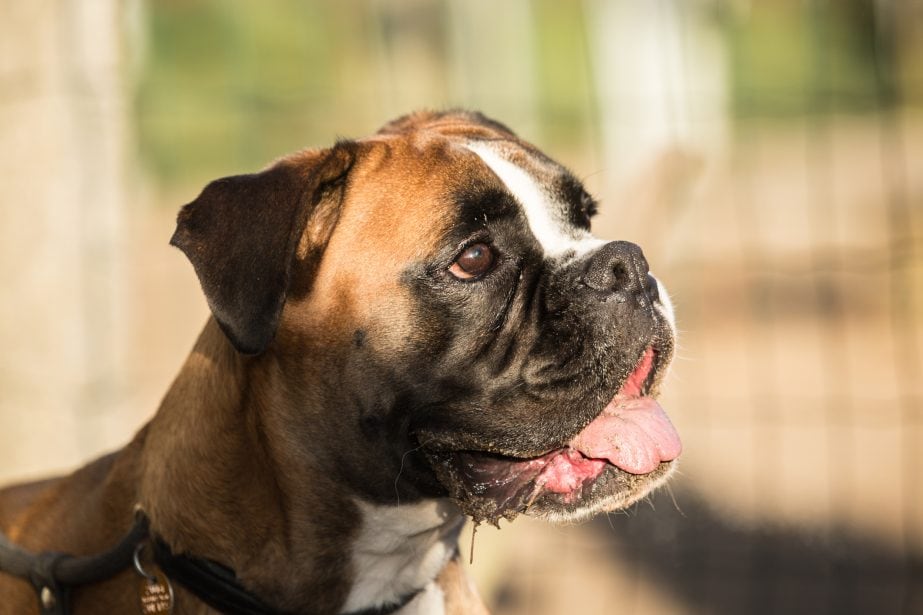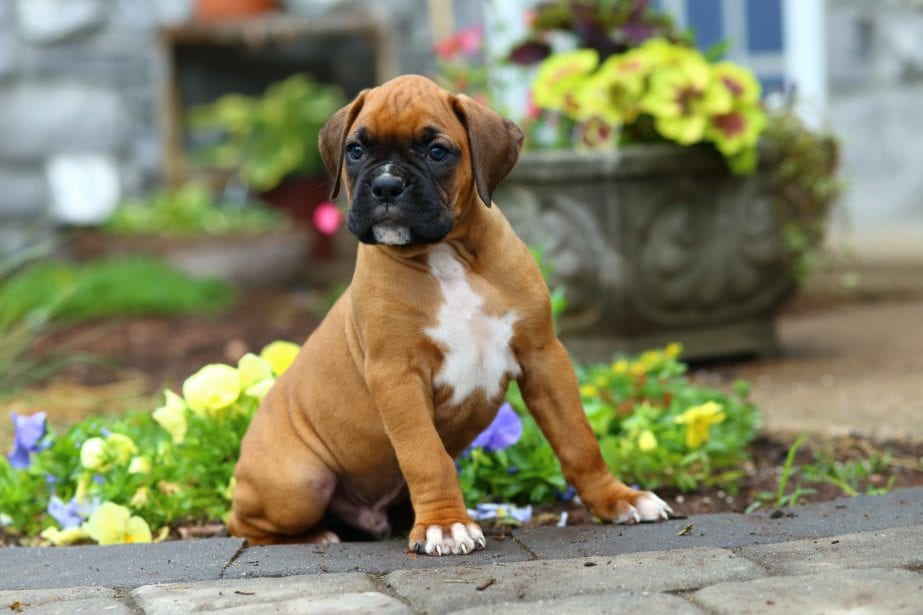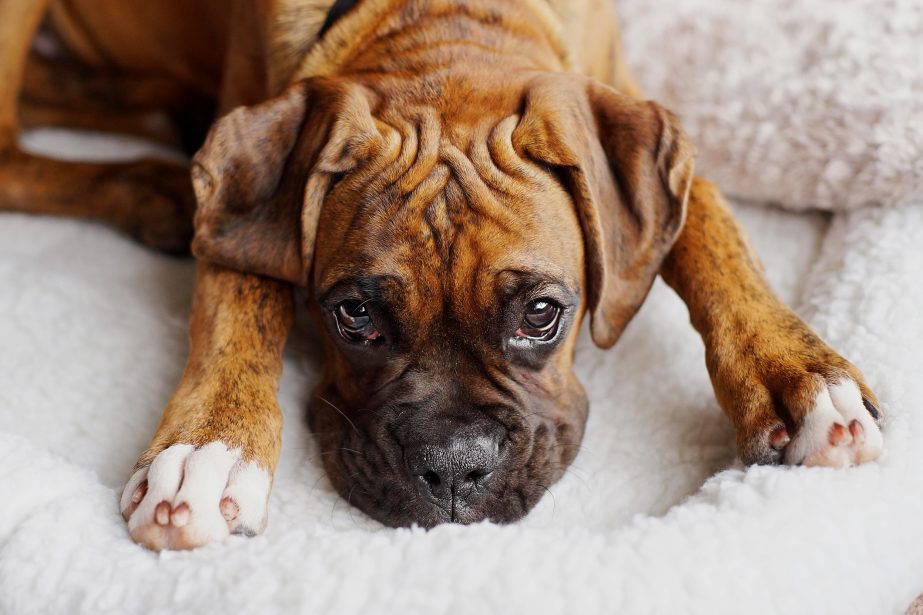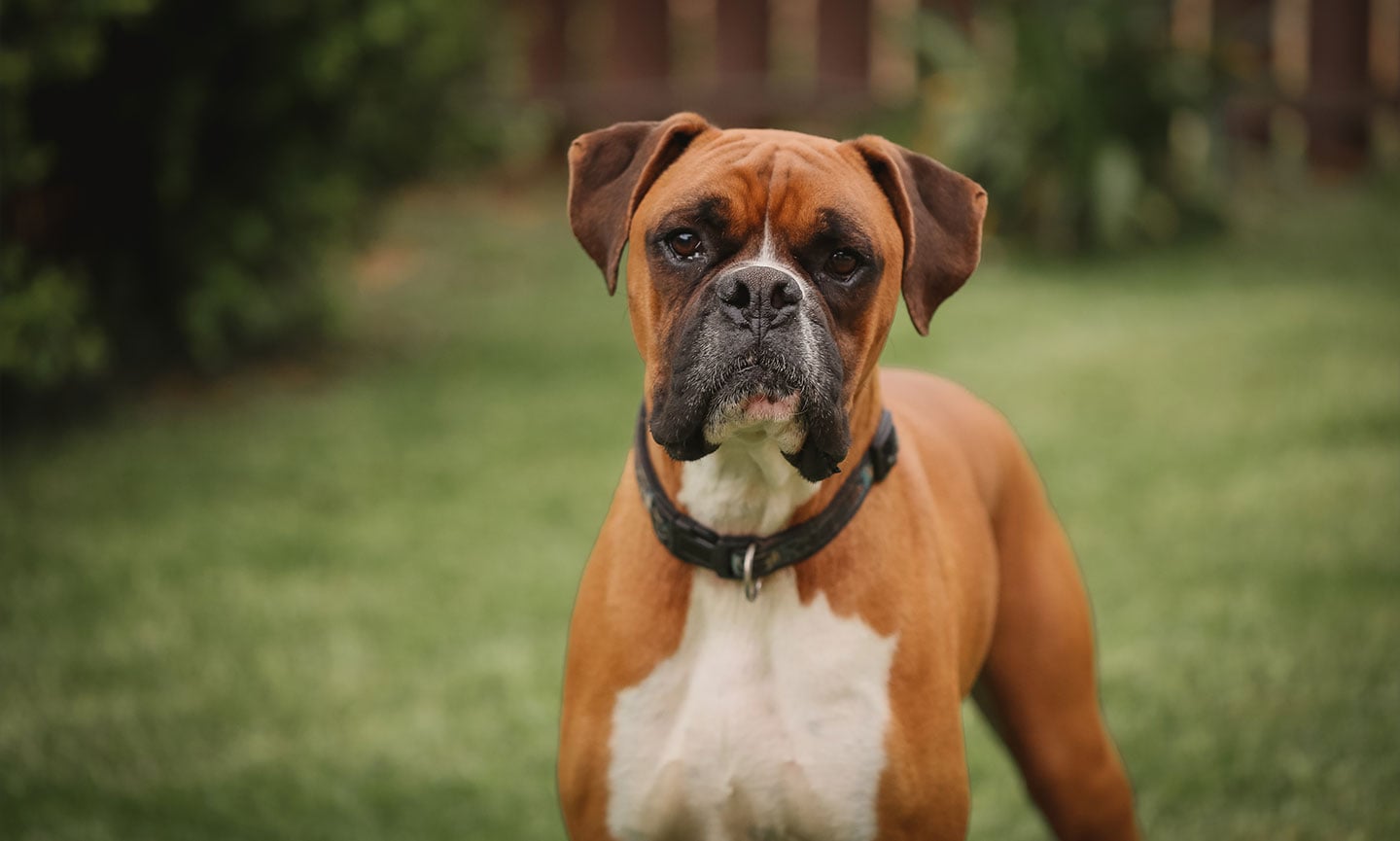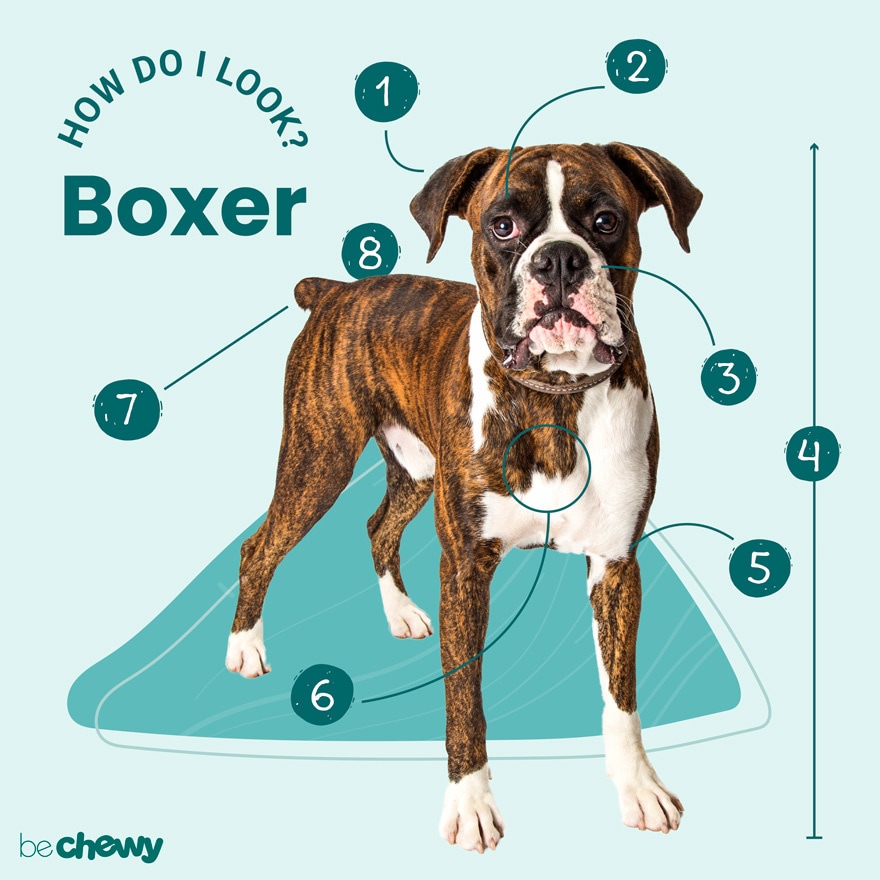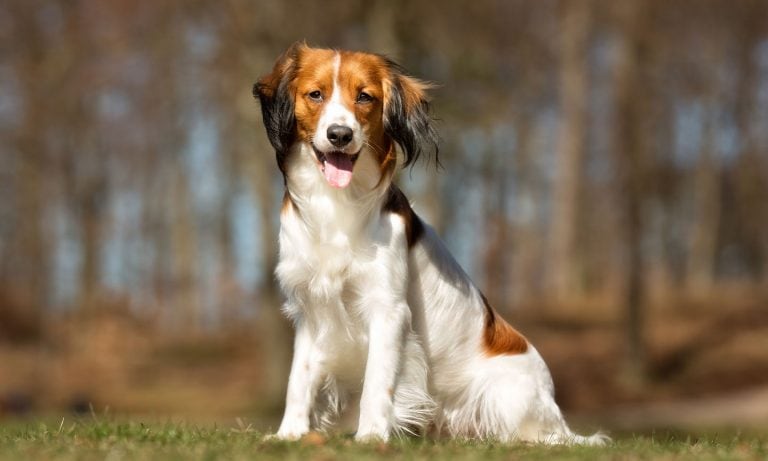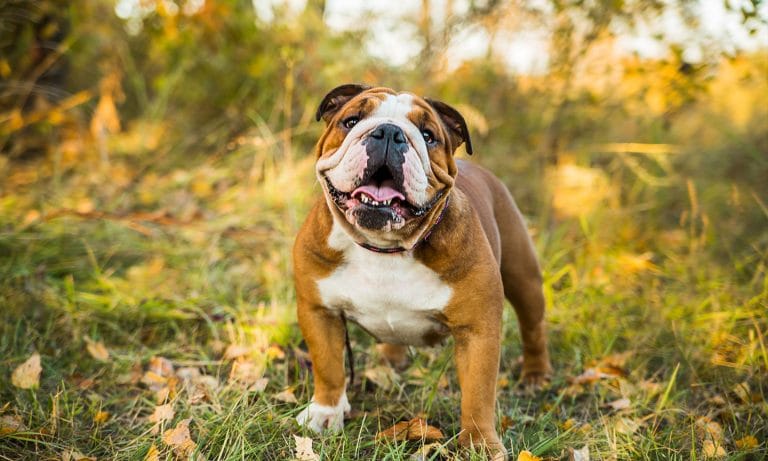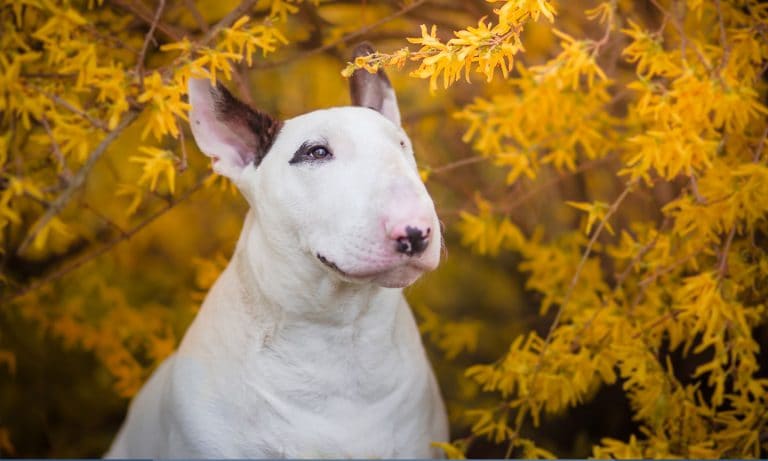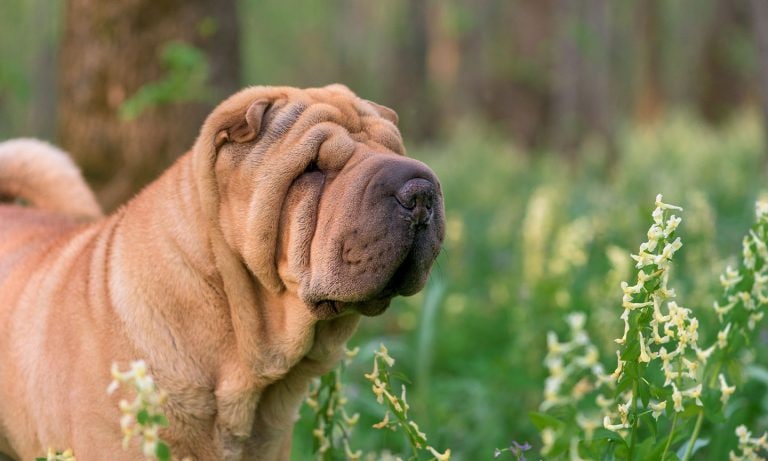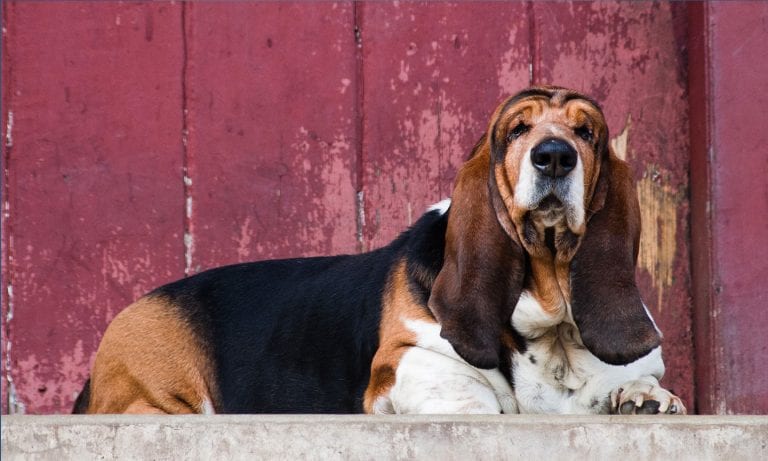The strong, athletic Boxer dog breed might look intimidating from afar, but up close, they are silly, outgoing and the life of the dog park. And let’s not forget about their adorable full-body wiggle. Loyal and protective, the Boxer makes a great family dog. One look into their sweet, human-like eyes, and you might just fall for this fun-loving, easy-going breed.
Breed Snapshot
Temperament:
LoyalLife Of The PartyFearlessCoat Color:
FawnBrindle
Best For
Energetic and playful, Boxers do well in households with active parents who can provide regular exercise and playtime and in homes that have a big yard where they can stretch their legs. Loyal and affectionate, Boxers thrive on social interaction with their family.
Boxer Temperament
With their muscular physique and dark eyes, Boxers might seem tough and serious. But don’t be fooled! The ability to make many two- and four-legged friends is one of the Boxer’s greatest strengths. Silly pups at heart, they’re like a kid in a dog’s body, which may explain why Boxers and kids get along so well. They’ll never cease to put a smile on your face with their clown-like antics. You can often catch them sitting with their rear legs out in front of them (like people) and rolling back into a lazy dog position. They’re also prone to zoomies and stopping on a dime to dole out sloppy, wet kisses. If your dream dog is athletic and affectionate, the Boxer’s for you.
Often described as being more human than dog, Boxers are known to be quite sensitive. They’ll work 24/7 to please their loved ones, but this desire to please means they can get their feelings hurt. (Sad puppy dog eyes warning!) Originally bred to serve as guard dogs, Boxers perform brilliantly as service, assistance and therapy dogs, and in roles such as drug detection and search-and-rescue. However, some Boxers may not get along well with dogs they don’t know and of the same sex.
How to Care for a Boxer
Exuberant, playful and sensitive, Boxers require a good deal of exercise and training. But the extra effort is worth it thanks to their good nature and charming personalities.
Boxer Health
Boxers have a life expectancy of 10-12 years, but they’re also prone to some health issues that can limit their lifespan and mobility. It’s good to know what those potential health problems are in advance, so you can keep them healthier longer.
- Heart Defects: Some Boxers are born with congenital heart defects. Later in life, they can develop a genetic heart muscle disease called arrhythmogenic right ventricular cardiomyopathy, or ARVC. Dilated cardiomyopathy (DCM) is also common in Boxers and can lead to heart failure. This condition causes the heart to enlarge and the walls of the heart to thin, leading to inefficient pumping of blood. Regular vet checkups and Holter monitoring (a portable device that monitors heart activity) from middle age onwards can prolong a Boxer’s life.
- Ulcers: Eye ulcers are a common condition in Boxers. Signs are extreme tearing, squinting and redness. If you suspect your Boxer has an eye ulcer, take them to a vet who can diagnose and treat it.
- Degenerative Myelopathy: This incurable degenerative neurological condition spreads through the spinal cord and can leave a dog unable to walk when they get older. Subtle dragging of the hind legs is often the first sign dog parents notice. A doggy wheelchair can help improve mobility and quality of life.
- Hip Dysplasia: Boxers have a predisposition to this skeletal condition in one or both hip joints. If your Boxer has trouble getting up from sitting or navigating stairs, it can be an indication of the disease. A veterinarian can diagnose hip dysplasia with an examination and X-ray. Treatment varies depending on the severity and may include physical therapy or surgery.
- Aortic Stenosis: This health condition, which refers to a narrowing at the heart’s aortic valve, is hereditary and occurs in large-breed dogs. It is often detected as a heart murmur during a routine physical exam but is diagnosed through an X-ray and echocardiogram. In mild cases, the dog may not need treatment. In moderate to severe instances, medication may be needed. Most often, exercise is limited in Boxers with this condition.
- Cancer: Unfortunately, Boxers are prone to several different cancers, including hemangiosarcoma and lymphosarcoma, as well as other tumors. Having a good vet who is in tune with your dog’s health history is essential.
- Dental Issues: Sometimes, Boxer teeth do not come in when expected, which can cause painful cysts to form that damage the dog’s jawbone. Boxer underbite, when the upper jaw is shorter than it should be, can be common. If the upper incisors dig into the lower jaw, teeth will have to be extracted.
- Hypothyroidism: Hypothyroidism occurs when the thyroid gland is no longer producing enough thyroid hormone. This can lead to changes that may include (but are not limited to) lethargy, weight gain, skin changes, reproductive problems and neurological problems. Hypothyroidism is typically managed with a daily thyroid medication that replaces the missing hormone.
- Gastric Dilitation-Volvulus (GDV): GDV is a problem that is most prevalent in large, deep-chested dogs. When GDV occurs, the stomach fills with food or gas and then twists, cutting off the blood supply to the stomach and adjacent structures. This condition can be rapidly fatal and requires immediate emergency treatment. Prevention may include feeding smaller more frequent meals (often from a slow-feeder bowl) and limiting exercise before and after feeding times. In addition, your veterinarian may recommend performing a surgical procedure called a gastropexy, which can secure the stomach to the chest wall and limit its ability to rotate.
Boxer History
The sleek Boxer we know today can be traced back to Medieval Germany. It was bred down from the larger German breed, the Bullenbeisser, or bull biter, whose forte was hunting ferocious game like bear and wild boar. Fun fact: The Boxer’s ancient ancestors were Assyrian empire war dogs and can be traced back to 2,500 BC. The name “Boxer” comes from the breed’s English fans and is a nod to how the breed plays or defends themselves with their front paws, similar to how a human boxer spars.
The American Kennel Club recognized the Boxer in 1904, and the breed’s parent club, the American Boxer Club, was formed in 1935. A jack-of-all-trades, Boxers have been athletes, cattle dogs, police dogs, war dogs (in both World Wars), watchdogs, protection dogs and guide dogs for the blind. Boxers have been one of America’s most popular breeds since the 1950s. That’s when a dog named Bang Away won at the Westminster dog show and became known throughout the country.
If you’re interested in making a Boxer part of your family, the cost ranges from $800 to $2,000 for a purebred Boxer puppy. It’s important to check the bloodline and choose a reputable breeder that does health testing. You can also reach out to a Boxer rescue organization to adopt a Boxer, keep an eye out for the breed at your local animal shelter, or search Chewy’s database of adoptable dogs in your area.
FAQs
Are Boxer dogs hypoallergenic?
No, Boxers are not considered hypoallergenic. Even though their coat is short, they do shed. The good news is they require little grooming. Some people are allergic to a dog’s saliva, and because a Boxer grooms themself with their tongue, the saliva can get onto their fur and into the air when they shed.
Do Boxers drool?
Yes, Boxers do drool. Because Boxers have drooping jowls, they produce large quantities of saliva. Most Boxers don’t drool all the time, but expect excess drool after exercising.
What are the most popular Boxer dog names?
Some of the most popular Boxer names are Bella, Luna, Roxy, Rocky, Max, Zoe, Lucy, Charlie, Bailey and Daisy. For more dog name ideas, here are our suggestions for top dog names.
What are the most common Boxer mixes?
The most common Boxer dog mixes are:
- Boxer-Labrador mix (Boxador)
- Boxer-Husky mix (Boxsky)
- Boxer-German Shepherd mix (Boxer Shepherd)
- Boxer-Bulldog mix (Bulloxer)
- Boxer-Poodle mix (Boxerdoodle)
- Boxer-Doberman mix (Boxerman)
- Boxer-Mastiff mix (Boxmas)
- Boxer-Great Dane mix (Boxane)
Note: These are not purebred dogs but mixed breeds.
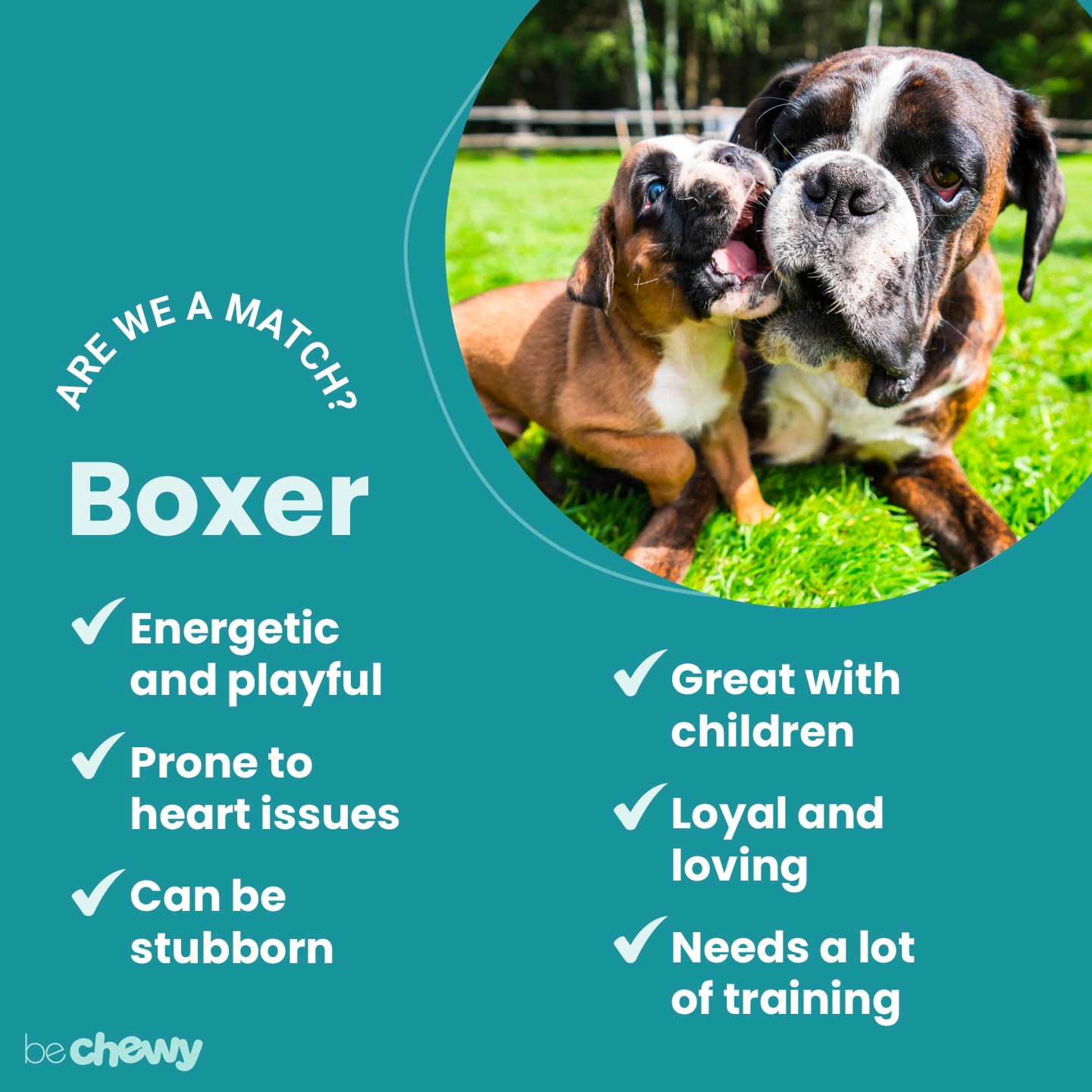
Top Takeaways
While they require a lot of care and attention, Boxer dog traits, including loyalty, protectiveness and goofiness, make it easy to understand why the Boxer is one of the most popular breeds in the US. Boxers are beautiful, friendly and the most loyal companion a human could ask for.
Living With and Loving Your Boxer Dog:
How to Train Your Dog Not to Bark
Expert input provided by Guy Fisher, a second-generation Boxer breeder and longtime member of The American Boxer Club; and Dr. Suzanne Cunningham, a veterinary cardiologist and associate professor at Cummings School of Veterinary Medicine at Tufts University.
Breed characteristic ratings provided by veterinarian Dr. Sarah J. Wooten, DVM, CVJ, a veterinarian at Sheep Draw Veterinary Hospital in Greeley, Colorado; dog trainer and behavior consultant Irith Bloom, CPDT-KSA, CBCC-KA, CDBC, owner of The Sophisticated Dog, LLC, in Los Angeles; and certified animal behavior consultant Amy Shojai, CABC, in Sherman, Texas.
The health content was medically reviewed by Chewy vets.

Search for Adoptable Boxers Near You
Female Names
- Bella
- Luna
- Daisy
- Stella
- Lucy
- Lola
- Roxy
- Maggie
- Bailey
- Sadie
Male Names
- Rocky
- Cooper
- Max
- Tyson
- Duke
- Tucker
- Apollo
- Jax
- Hank
- Zeus
Share:
